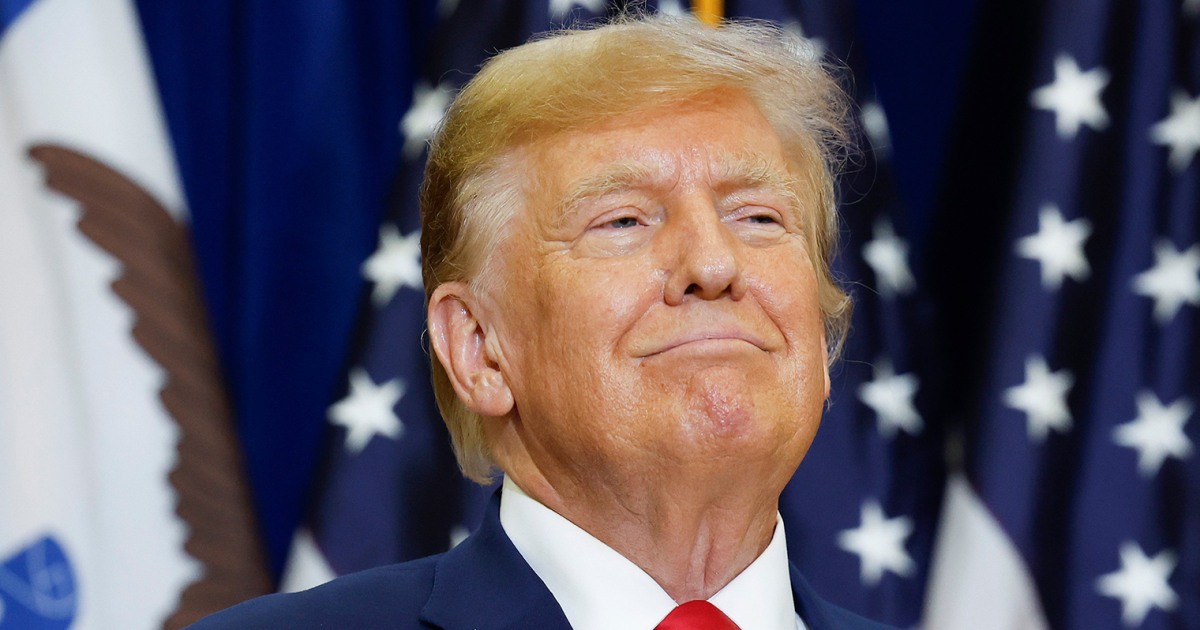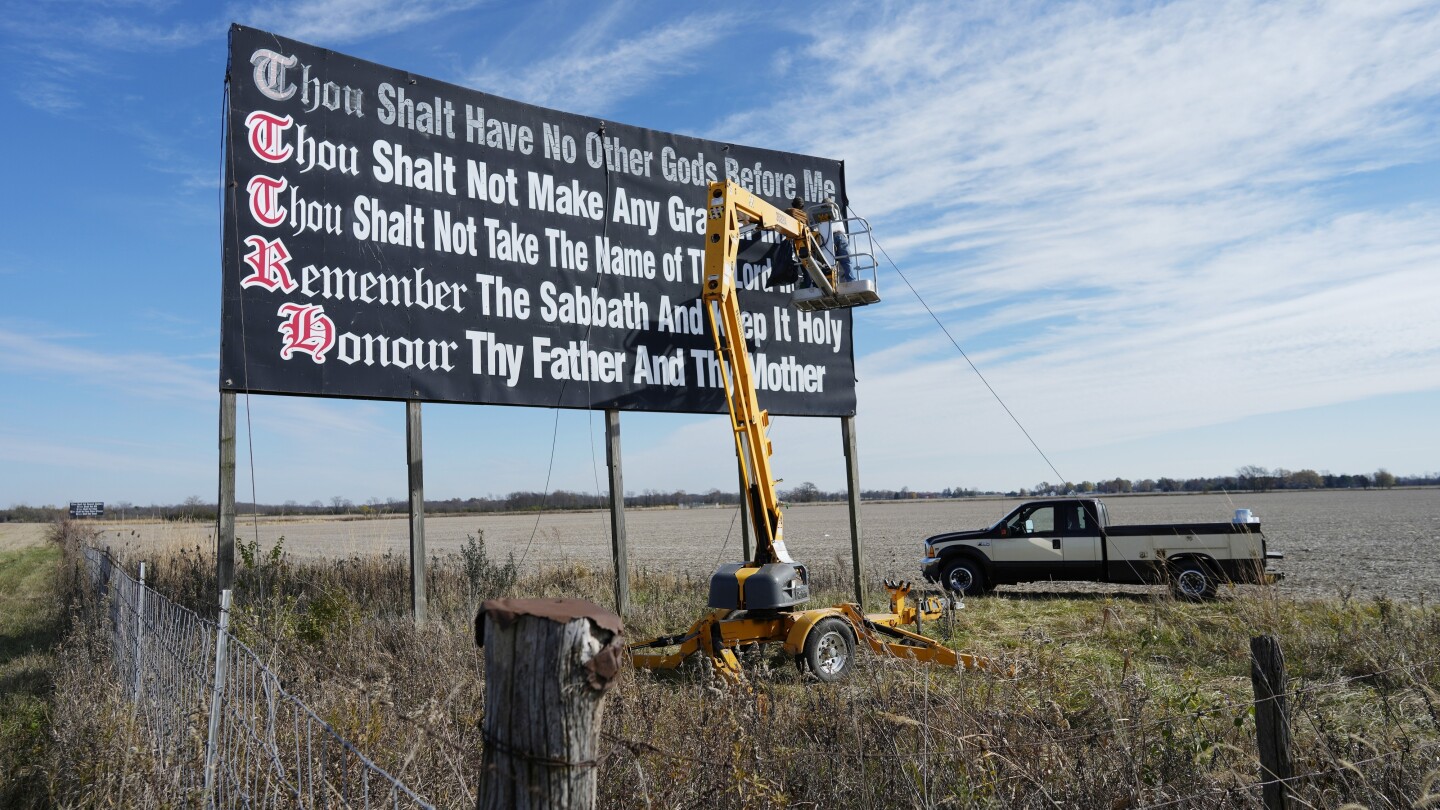this is orders of magnitude more dangerous than president biden being a gaffe machine
pfffttt...they are exactly the same. In fact, Biden is worse.
this is orders of magnitude more dangerous than president biden being a gaffe machine
I know I shouldn't, but this is such low-hanging fruit.Republicans have repeatedly said at various points that they want a religious test for politicians and public servants, despite the Constitution's prohibition in this regard.

I wouldn't go that far.I guess some want to ignore the equal protection clause of the Constitution...
I wouldn't go that far.
The origins of the equal protection clause of the XIV Amendment was that southern states imposed one penalty for a white man breaking the law, and another if broken by a black man. Congress (rightly) found that unacceptable.
Which equal protections did you believe someone was arguing against?
I know I shouldn't, but this is such low-hanging fruit.NationalTitles18 said:
Republicans have repeatedly said at various points that they want a religious test for politicians and public servants, despite the Constitution's prohibition in this regard.
The Constitution forbids religious tests for federal office, because the Founders could not agree on what that test oath would be at the federal level.
At the state level, religious tests were common at the time of ratification.
Thanks for a thoughtful response. I have two comments.I am not arguing Constitution prohibitions at the time of the ratification, but present day.
Since I am not saying anything about what was but what is you seem to be implying that present day the states would be able to get away with a religious test, which if prevailing wisdom and SCOTUS precedent (Torcaso v. Watkins) is carried they would not be able to do today.
So, not so much low hanging fruit for now; but with the present court, who knows?
ETA: Technically, SCOTUS may have ruled it as a 1A issue, but the end result is unchanged.
Thanks for a thoughtful response. I have two comments.
1. The state constitutions would (and in most cases now do) outlaw religious tests for office holding. North Carolina is the one exception that comes readily to mind. But the federal government stepping beyond its proper sphere to tell a state it cannot have a religious test would violate the provisions of the X Amendment. It is possible that the drafters and ratifiers of the XIV Amendment said that we should ratify this amendment because it will empower the federal government to compel a state to drop a religious qualification for office. I would love to see the evidence of this construction from the period when the XIV Amendment was being debated and ratified.
2. There was a practical reasons for a religious test which came out during (ironically) the debates in the North Carolina ratification convention in 1788. The upshot was that a non-Christian taking the oath of office should not be trusted. A system of rewards and punishments after this life seemed important to people at that time.
James Iredell explained. "According to the modern definition of an oath, it is considered a 'solemn appeal to the Supreme Being for the truth of what is said, by a person who believes in the existence of a Supreme Being, and in a future state of rewards and punishments, according to that form which will bind his conscience most.' It was long held, that no oath could be administered but upon the New Testament, except to a Jew, who was allowed to swear upon the old. According to this notion, none but Jews and Christians could take an oath, and Heathens were altogether excluded. At length, by the operation of principles of toleration, these narrow notions were done away. Men at length considered, that there were many virtuous men in the world who had not had an opportunity of being instructed either in the Old or New Testament, who yet very sincerely believed in a Supreme Being, and in a future state of rewards and punishments. It is well known that many nations entertain this belief who do not believe either in the Jewish or Christian religion. Indeed there are few people so grossly ignorant or barbarous as to have no religion at all. And if none but Christians or Jews could be examined upon oath, many innocent persons might suffer for want of the testimony of others. In regard to the form of an oath, that ought to be governed by the religion of the person taking it. I remember to have read an instance which happened in England, I believe in the time of Charles the second: A man who was a material witness in a cause, refused to swear upon the book, and was admitted to swear with his uplifted hand. The jury had a difficulty in crediting him, but the Chief Justice told them, he had, in his opinion, taken as strong an oath as any of the other witnesses, though had he been to swear himself, he should have kissed the book. A very remarkable instance also happened in England about forty years ago, of a person who was admitted to take on oath according to the rights of his own country, though he was an Heathen. He was an East-Indian, who had a great suit in Chancery, and his answer upon oath to a bill filed against him, was absolutely necessary. Not believing either in the Old or New Testament, he could not be sworn in the accustomed manner, but was sworn according to the form of the Gentoo (ed. "Hindu") religion, which he professed, by touching the foot of a Priest. It appeared, that according to the tenets of this religion, its members believed in a Supreme Being, and in a future state of rewards and punishments. It was accordingly held by the Judges, upon great consideration, that the oath ought to be received; they considering that it was probable those of that religion were equally bound in conscience by an oath according to their form of swearing, as they themselves were by one of theirs; and that it would be a reproach to the justice of the country, if a man, merely because he was of a different religion from their own, should be denied redress of an injury he had sustained. Ever since this great case, it has been universally considered, that in administering an oath, it is only necessary to enquire if the person who is to take it, believes in a Supreme Being, and in a future state of rewards and punishments. If he does, the oath is to be administered according to that form which it is supposed will bind his conscience most."
And that is why, I believe, the provision continues in the North Carolina Constitution to this day.
I do not disagree with you.SCOTUS since 1961 has disagreed with you and I hope they do not break that track record. There should be no religious test for office in this nation.
I do not disagree with you.
Just that where we are today came from somewhere. I'm interested in where that was.
Already posted this in another thread, but it seems to fit here as well...

New law requires all Louisiana public school classrooms to display the Ten Commandments
The legislation that Republican Gov. Jeff Landry signed into law requires the display of the Ten Commandments in every public school classroom.apnews.com
Testing their control of the court...Already posted this in another thread, but it seems to fit here as well...

New law requires all Louisiana public school classrooms to display the Ten Commandments
The legislation that Republican Gov. Jeff Landry signed into law requires the display of the Ten Commandments in every public school classroom.apnews.com
I think it will be struck down and it should be.Testing their control of the court...
It’s ok. It will be fine. It will all wash out in the reignRidiculous.
It’s ok. It will be fine. It will all wash out in the reign
Just a reference to the Stonehenge thread. Bad attempt at humor. Rain vs Reign. All good.Not certain I catch your meaning.
Respondent Zackey Rahimi was indicted under 18 U. S. C. §922(g)(8), a federal statute that prohibits individuals subject to a domestic violence restraining order from possessing a firearm...
...Held: When an individual has been found by a court to pose a credible threat to the physical safety of another, that individual may be temporarily disarmed consistent with the Second Amendment. Pp. 5–17.

